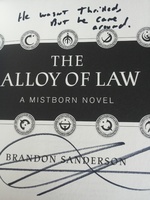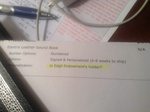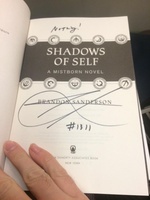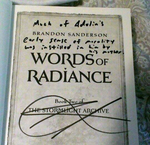Brandon Sanderson
Chapter Forty
Originally, I had the steps leading up to Elantris from the outside be a construction put there by the people of Kae. I knew I wanted a large number of scenes on the wall–it is such a dominant visual feature of the book that I thought it would make a good stage for scenes. However, I quickly realized that it would be the people of Kae–not the Elantrians–who controlled the wall. The Elantris City Guard grew from this idea, as did the set of steps constructed on the outside, leading up.
As I worked more and more on the book, however, I came to realize that the pre-Reod Elantrians wouldn't have needed a city wall for protection.
Obviously, to those who've read more, there is a good Aon-based reason for the wall. However, there is more to it than that, as well.
The wall of the city is a symbol–it's part of the city's majesty. As such, it made more and more sense that there would be plenty of ways to get up on top of it.
When we got the cover art back from Stephen, we were amazed by its beauty. A few things, however, didn't quite mesh with the text. One of these was the set of steps–they were so ornate, so beautiful, that it didn't fit that they would have been designed by the people of Kae. At that point, things kind of fell together, and I realized that there was no reason why the Elantrians themselves wouldn't have put a large staircase outside the city leading up to the wall.
And so, in the final rewrite of the book (the ninth draft) I changed the staircase, and the general feel of the wall, to give the proper sense to the reader. The staircase was placed by the Elantrians as a means of getting up on top the wall. The wall itself became less a fortification, and more a wonder–like the Eiffel Tower. It is there to be climbed and experienced.














